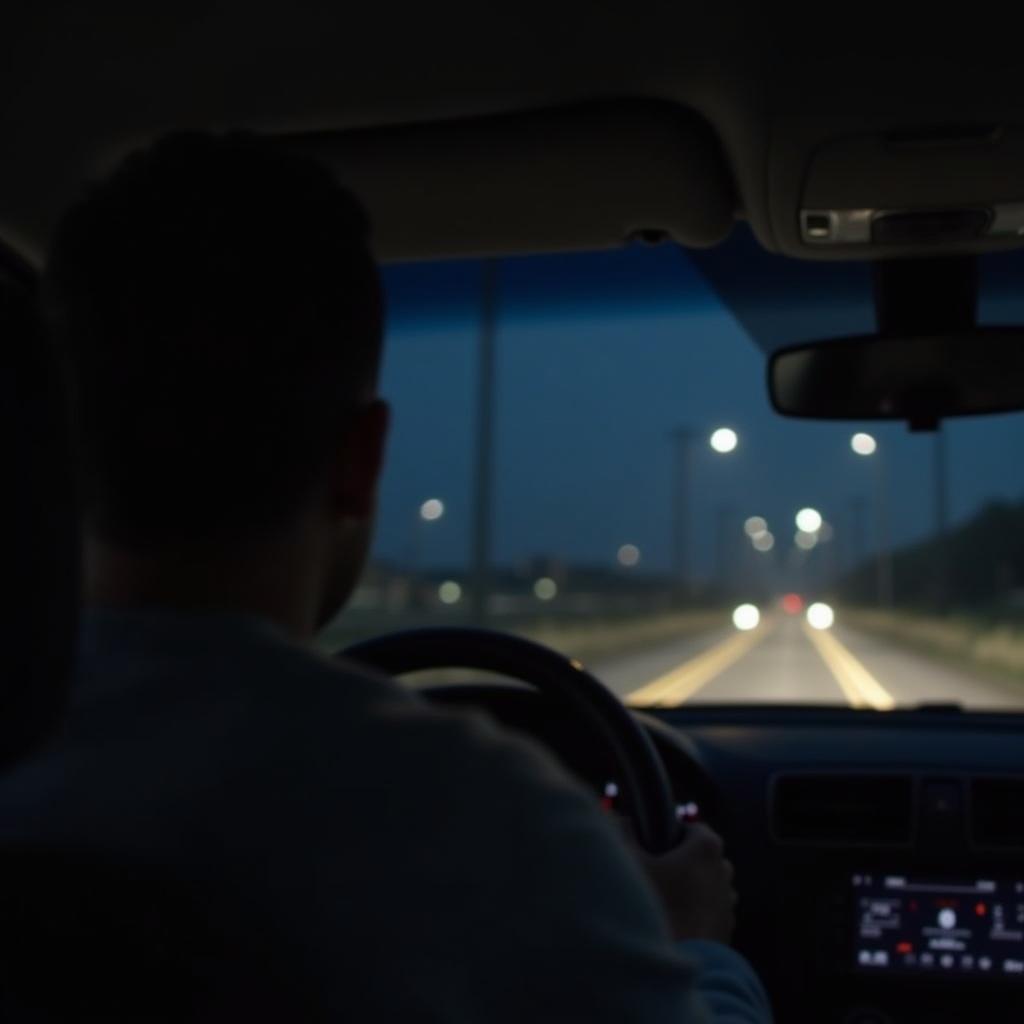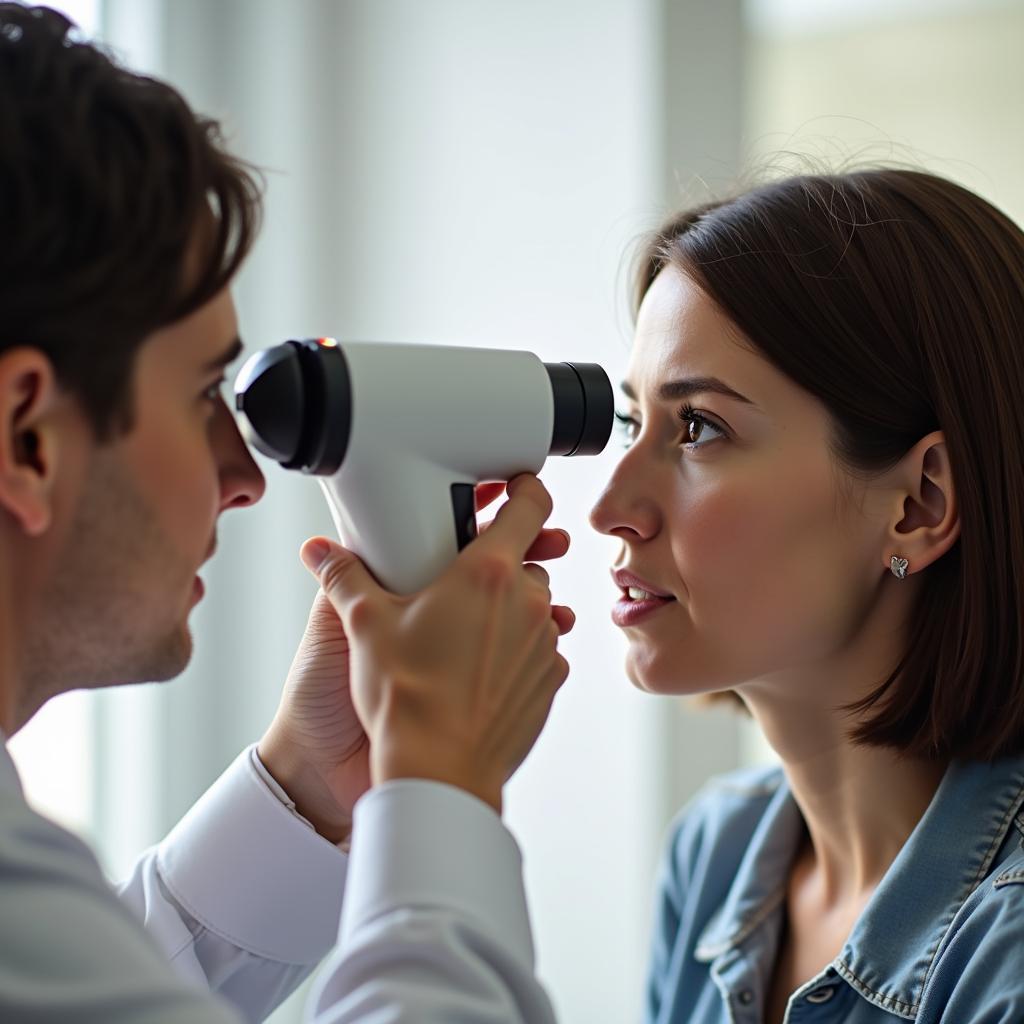Night blindness – a dreaded scenario for many drivers. But what happens when the ability to see clearly at dusk and in the dark diminishes? Does night blindness automatically mean losing your driver’s license? In this article, we will explore this question and clarify the impact of night blindness on your fitness to drive and the potential legal consequences.
Night Blindness – A Serious Problem
Imagine this: You are driving on a country road, the sun has just set, and dusk is setting in. Suddenly, you find it difficult to see the road clearly, and oncoming cars appear as blurred outlines. This situation, which can become life-threatening for those affected, is everyday life for people with night blindness.
But what exactly is “night blindness”? Simply put, it is a visual impairment that severely restricts vision in the dark or in poor lighting conditions. The causes of night blindness are varied. It can be congenital, occur as a symptom of other eye diseases, or be caused by vitamin A deficiency.
 A driver experiencing blurred vision at night due to night blindness.
A driver experiencing blurred vision at night due to night blindness.
Driving License and Night Blindness: What the Law Says
In Germany, the Road Traffic Act (§ 11 FeV) clearly states that every road user must be physically and mentally fit to drive a motor vehicle. This naturally includes eyesight.
But does a visual impairment such as night blindness automatically mean losing your driver’s license? Not necessarily. The crucial factor is whether your vision still meets the requirements for safe participation in road traffic. “The legislator sets clear requirements here for the field of vision and visual acuity,” explains Dr. Markus Schmidt, a specialist in ophthalmology from Berlin. “If these values are not met, this can lead to the revocation of the driving license.”
When is Your Driver’s License at Risk?
Whether your driver’s license is at risk in the case of night blindness depends on various factors:
- Severity of the visual impairment: Mild night blindness does not necessarily lead to the revocation of your driver’s license. The situation is different with a pronounced visual impairment that makes safe driving impossible.
- Individual fitness to drive: In addition to visual impairment, other factors such as reaction speed, general health condition, and driving experience also play a role in assessing fitness to drive.
- Medical certificate: In case of doubt, the driving license authority will order a medical-psychological assessment (MPU). This is to clarify whether you can safely drive a vehicle despite the visual impairment.
 An ophthalmologist examining a patient's eyes during an eye exam.
An ophthalmologist examining a patient's eyes during an eye exam.
What to Do About Night Blindness?
If you notice signs of night blindness in yourself, it is important to act quickly.
- See an ophthalmologist: Only a specialist can clarify the cause of your visual impairment and make a diagnosis.
- Inform the driving license authority: If you have already been diagnosed, you should inform the driving license authority about your condition. This will help you avoid legal consequences and show personal responsibility.
- Avoid driving in the dark: Limit your driving at dusk and in the dark as much as possible. It is better to walk, use public transport, or ask friends or family for support.
Conclusion: Safety Comes First!
Night blindness is a serious condition that can severely impair road safety. Although it does not necessarily lead to the revocation of your driver’s license, it is important to be aware of the responsibility you bear as a driver. If you suffer from night blindness, inform yourself in good time about your options and ensure your own safety and that of other road users.
Do you have questions about “night blindness and driving license”? Contact us! Our experts at AutoRepairAid are happy to help you with advice and assistance.

